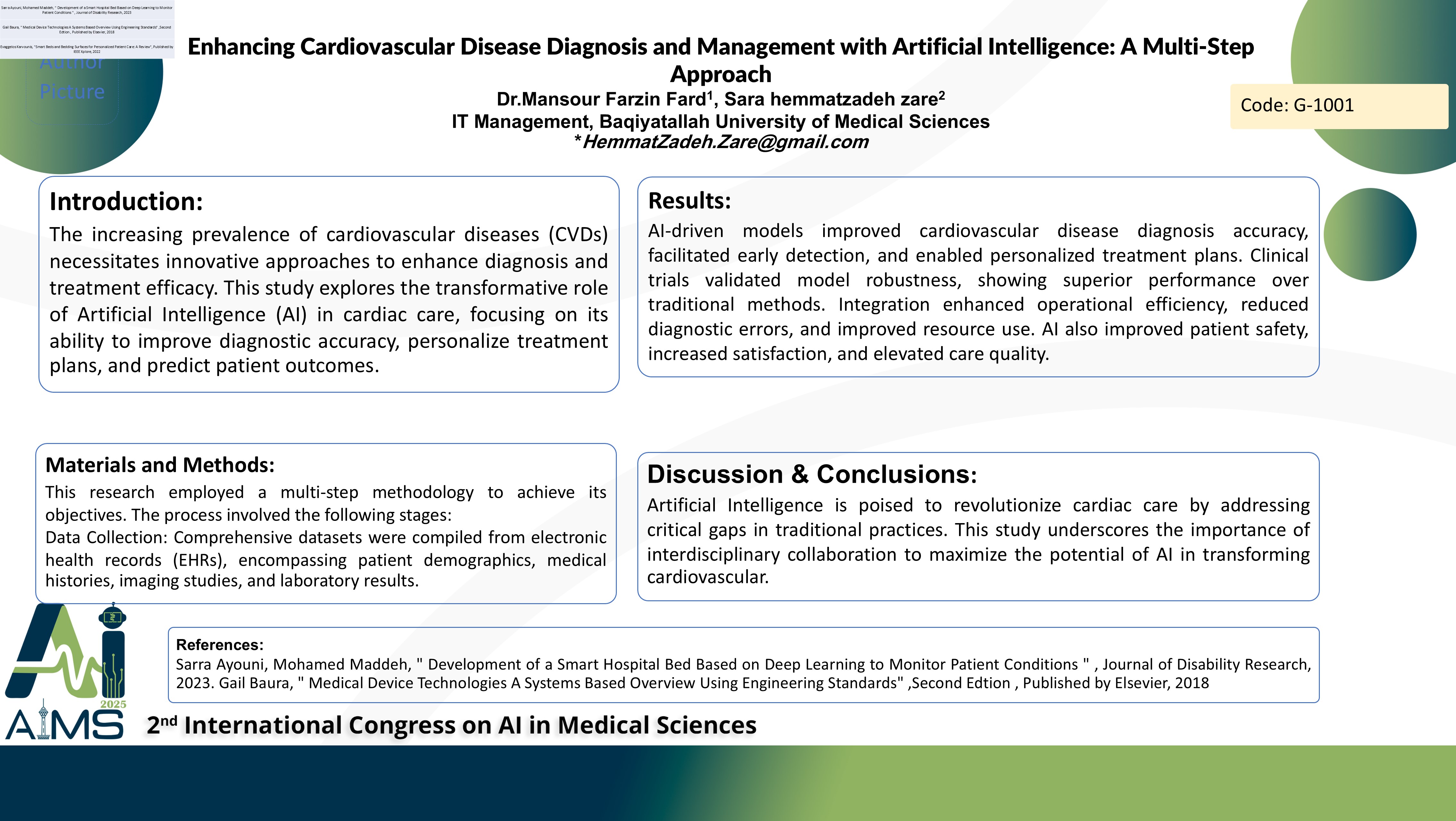بهکارگیری هوش مصنوعی برای پیشرفت در مراقبتهای بهداشتی و درمانی: نوآوریها و مسیرهای آینده
کد: G-1205
نویسندگان: دکتر منصور فرزین فرد, مهندس سارا همتزادهزارع * ℗
زمان بندی: زمان بندی نشده!
برچسب: بیمارستان هوشمند و اینترنت اشیا در پزشکی
دانلود: دانلود پوستر
خلاصه مقاله:
خلاصه مقاله
Background and aims: The increasing prevalence of cardiovascular diseases (CVDs) necessitates innovative approaches to enhance diagnosis and treatment efficacy. This study explores the transformative role of Artificial Intelligence (AI) in cardiac care, focusing on its ability to improve diagnostic accuracy, personalize treatment plans, and predict patient outcomes. By employing advanced methodologies, including data collection from electronic health records (EHRs), machine learning algorithm development, and clinical validation, this research aims to demonstrate how AI technologies can address existing challenges in heart disease management. The findings highlight the potential of AI to revolutionize cardiac care by streamlining workflows, improving patient outcomes, and ensuring equitable healthcare delivery. Furthermore, the integration of AI tools is shown to enhance care quality, increase satisfaction among physicians, patients, and staff, and bolster patient safety[1]. Method: This research employed a multi-step methodology to achieve its objectives. The process involved the following stages: Data Collection: Comprehensive datasets were compiled from electronic health records (EHRs), encompassing patient demographics, medical histories, imaging studies, and laboratory results. Development of Machine Learning Models: Machine learning algorithms, including deep learning models, were developed to analyze the data for risk stratification, early detection, and predictive analytics. Natural Language Processing: Techniques of natural language processing were utilized to extract insights from unstructured clinical notes. Validation: Validation of AI-driven models was conducted through multicenter clinical trials to ensure their reliability and generalizability across diverse populations. Pilot Implementation: Pilot implementations were carried out in leading cardiac care centers to evaluate the integration of AI tools into routine clinical workflows and assess their impact on operational efficiency and patient management. Results: AI-driven models improved cardiovascular disease diagnosis accuracy, facilitated early detection, and enabled personalized treatment plans. Clinical trials validated model robustness, showing superior performance over traditional methods. Integration enhanced operational efficiency, reduced diagnostic errors, and improved resource use. AI also improved patient safety, increased satisfaction, and elevated care quality. Conclusion: Artificial Intelligence is poised to revolutionize cardiac care by addressing critical gaps in traditional practices. This study underscores the importance of interdisciplinary collaboration to maximize the potential of AI in transforming cardiovascular.
کلمات کلیدی
Artificial Intelligence, Cardiovascular Diseases, Treatment.
